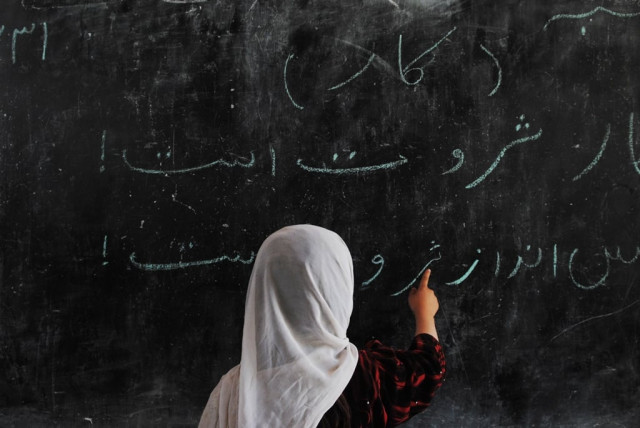Educating girls
Only 43 per cent of all children in grade five can read a simple English text.

The needs of rural communities, often in areas that are thinly populated like Balochistan and interior Sindh, rarely receive priority and the education needs of girls in these places is not high on any federal or provincial agenda. PHOTO: AFP/FILE
It is now for the Ministry of Education, Training and Standards in Higher Education to implement the MoU. That might be easier said than done. The agreement will probably enhance employment opportunities for women teachers in remote areas, but there is still cultural resistance to educating girls in far-flung places, and $7 million is not going to go very far when spread across the national picture of deficit. The money is not coming from any government budget either, and at the very least, there should be a demonstration of support in terms of match-funding from the government side. The needs of rural communities, often in areas that are thinly populated like Balochistan and interior Sindh, rarely receive priority and the education needs of girls in these places is not high on any federal or provincial agenda. There needs to be attitudinal change both in government and in sociocultural positions for this initiative to be effective. Local leaders and religious scholars need to be brought on board and educated themselves, as they are often the key to success. Solutions that are ‘parachuted in’ without a sense of ownership by target communities often fail, killed off by the antipathy of those they were designed to benefit and we hope that will not be the case with this initiative.
Published in The Express Tribune, February 8th, 2014.
Like Opinion & Editorial on Facebook, follow @ETOpEd on Twitter to receive all updates on all our daily pieces.















COMMENTS
Comments are moderated and generally will be posted if they are on-topic and not abusive.
For more information, please see our Comments FAQ